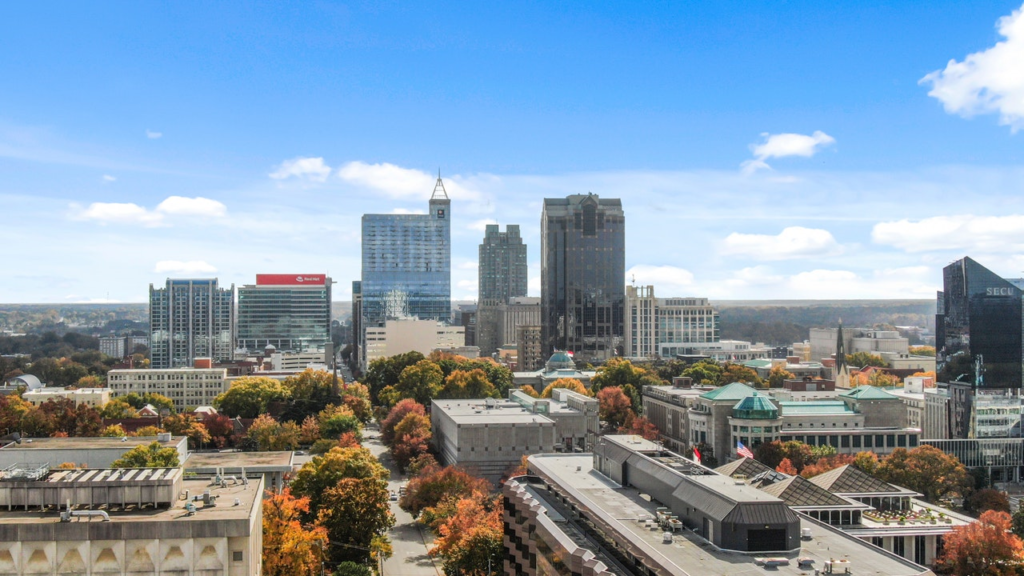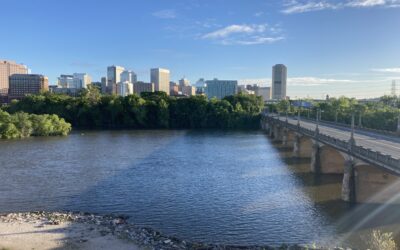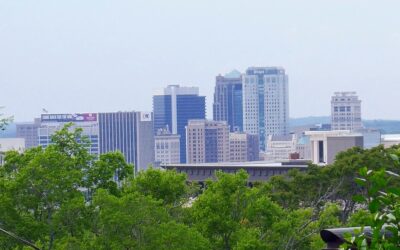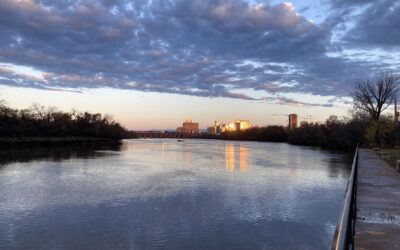Raleigh Moving Guide

Considering a move to Raleigh? Here are a few things to consider before taking the plunge:
What should I know about moving to Raleigh, North Carolina?
Raleigh is the capital of North Carolina, and it’s a bustling city with a lot to offer. Here are a few things you should know before moving there:
1. Cost of living: Raleigh has a relatively low cost of living compared to other major cities in the US. Housing costs are affordable thanks to new construction, and you can find a variety of housing options in different neighborhoods.
2. Job market: Raleigh is home to several major companies, such as IBM, Cisco, and Red Hat, which means there are plenty of job opportunities available. The city has a thriving tech industry and is also known for its healthcare and education sectors.
3. Climate: Raleigh has a humid subtropical climate, which means hot summers and cool winters. You’ll need to be prepared for high humidity levels in the summer and the possibility of hurricanes in the fall.
4. Culture: Raleigh is a vibrant city with a rich arts and culture scene. There are several museums and art galleries, as well as a thriving music and theater scene. The city also hosts several festivals and events throughout the year.
5. Outdoor activities: Raleigh is surrounded by beautiful parks and lakes, making it a great place for outdoor activities. The city has several hiking and biking trails, as well as opportunities for fishing and boating.
6. Education: Raleigh is home to several well-regarded universities, including North Carolina State University, Duke University, and the University of North Carolina at Chapel Hill.
Why are people moving to Raleigh, North Carolina?
One reason people are moving to Raleigh, North Carolina is its strong and diverse economy. Raleigh has a thriving job market, particularly in the fields of technology, healthcare, education, and government. The presence of several prestigious universities, including North Carolina State University and Duke University, also makes it an attractive location for students and professionals alike.
Another factor contributing to Raleigh’s popularity is its high quality of life. The city has a relatively low cost of living compared to other major cities, making it an affordable option for individuals and families looking to settle down. Raleigh is also known for its beautiful parks and outdoor spaces, as well as its vibrant arts and culture scene.
Additionally, Raleigh is located in the heart of the Research Triangle, which is a hub of innovation and technology that includes Durham and Chapel Hill. This makes it an ideal location for tech startups and entrepreneurs looking to break into the industry.
ow many people are moving to Raleigh, North Carolina each year?
According to recent data, Raleigh, North Carolina has been one of the fastest-growing cities in the United States. It is estimated that approximately 63 people move to the Raleigh area each day, which translates to roughly 23,000 newcomers every year.
What cities in Raleigh, North Carolina are seeing the most people moving to them?
According to recent data from the U.S. Census Bureau, the following cities in Raleigh, North Carolina, have seen the most population growth and are attracting many people to move there:
1. Cary – Cary has grown tremendously in the last decade and is consistently ranked as one of the best places to live in the country due to its strong economy, high-quality schools, low crime rates, and great overall quality of life.
2. Apex – Apex is a small town located just outside of Raleigh and has become a popular destination for families due to its strong community, excellent schools, and affordable housing.
3. Holly Springs – Holly Springs is another rapidly growing town in Wake County that is known for its excellent schools, great parks, and welcoming community.
4. Morrisville – Morrisville is a fast-growing town that has been attracting tech industry workers due to its close proximity to Research Triangle Park and its excellent schools and amenities.
What are the advantages to living in Raleigh, North Carolina?
There are several advantages to living in Raleigh, North Carolina:
1. Great Weather: Raleigh has a subtropical climate that provides warm, sunny weather throughout most of the year. The winters are mild, and the summers are not too hot.
2. Job Opportunities: Raleigh is the capital of North Carolina, and as such, there are many job opportunities available, especially in the technology and healthcare sectors. The Research Triangle Park, which is located nearby, has over 250 companies, including IBM, Cisco, and GlaxoSmithKline.
3. Education: Raleigh is home to several prestigious universities, including North Carolina State University, Duke University, and the University of North Carolina at Chapel Hill. These universities offer excellent educational opportunities for both undergraduate and graduate students.
4. Quality of Life: Raleigh consistently ranks as one of the best places to live in the United States. It has a low cost of living, and the city is known for its high quality of life. There are many parks and recreational opportunities, and the city is known for its excellent restaurants and cultural activities.
5. Location: Raleigh is located in the center of North Carolina, making it a great home base for exploring the rest of the state. It is also conveniently located halfway between the beach and the mountains, making it easy to take a day trip to either location.
What are the disadvantages to living in Raleigh, North Carolina?
While Raleigh has many great qualities, there are also some potential downsides to consider. Here are a few:
1. High cost of living: Raleigh has a higher cost of living than the national average, particularly in housing and transportation.
2. Traffic: As a growing city, Raleigh has some traffic congestion during peak hours, particularly on major roads and highways.
3. Climate: While Raleigh has mild winters, summers can be hot and humid, which can be uncomfortable for some people.
4. Limited public transportation: The city’s public transportation system is not as extensive as some other cities, which may make getting around more challenging, particularly for those without a car.
5. Lack of diversity: While this is improving, Raleigh has historically been a less diverse city, which may not appeal to those who value multicultural communities.
What are taxes in Raleigh, North Carolina like compared to other states?
In general, the taxes in North Carolina are relatively average when compared to other U.S. states. According to the Tax Foundation, North Carolina’s state and local tax burden as a share of state income is 9.8%, which is slightly higher than the national average of 9.9%.
Regarding Raleigh specifically, the sales tax rate for the city is 7.25% (which includes the state sales tax of 4.75% and a local sales tax of 2.5%). The property tax rate in Wake County (where Raleigh is located) is around 0.86% of the assessed value of a property.
How are schools in Raleigh, North Carolina compared to other states?
\According to GreatSchools, a website that rates schools nationwide, Raleigh schools have an average rating of 7 out of 10, which is higher than the national average. In addition, North Carolina consistently ranks in the top half of states for average SAT scores, and the state has made significant investments in education in recent years to improve student outcomes.
What is the weather in Raleigh, North Carolina like?
The weather in Raleigh, North Carolina is generally mild with four distinct seasons. Summers are hot and humid with temperatures frequently reaching the 90s (Fahrenheit) during the day. Winters are cool with average high temperatures around 50 degrees and occasional snowfall. Spring and fall are pleasant with mild temperatures and lovely scenery as the foliage changes colors.






Recent Comments